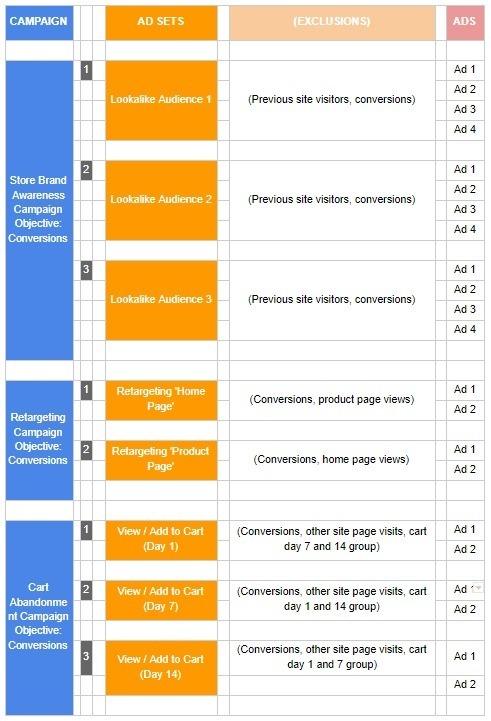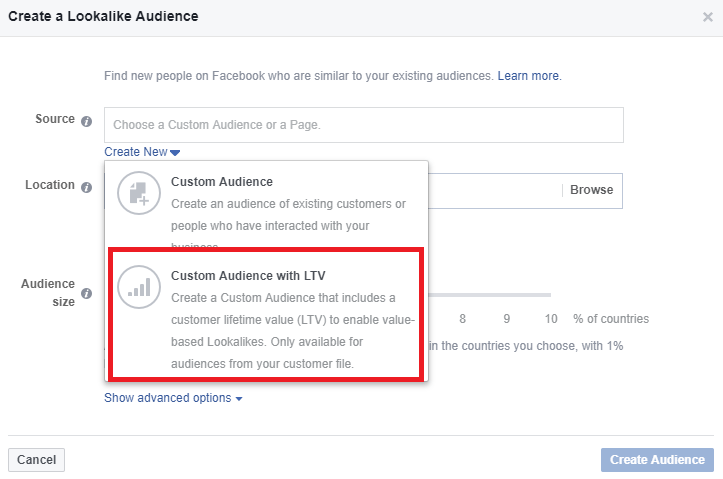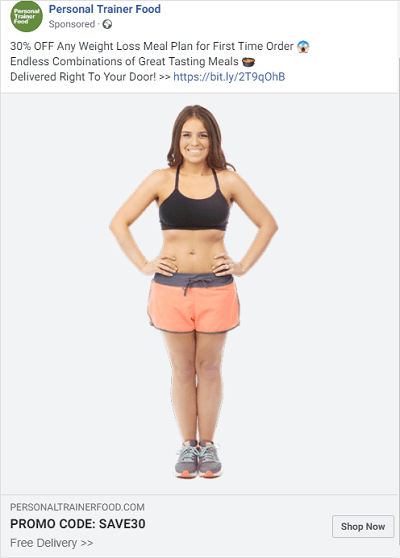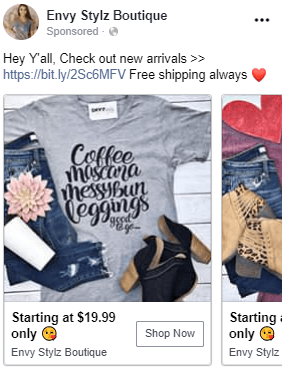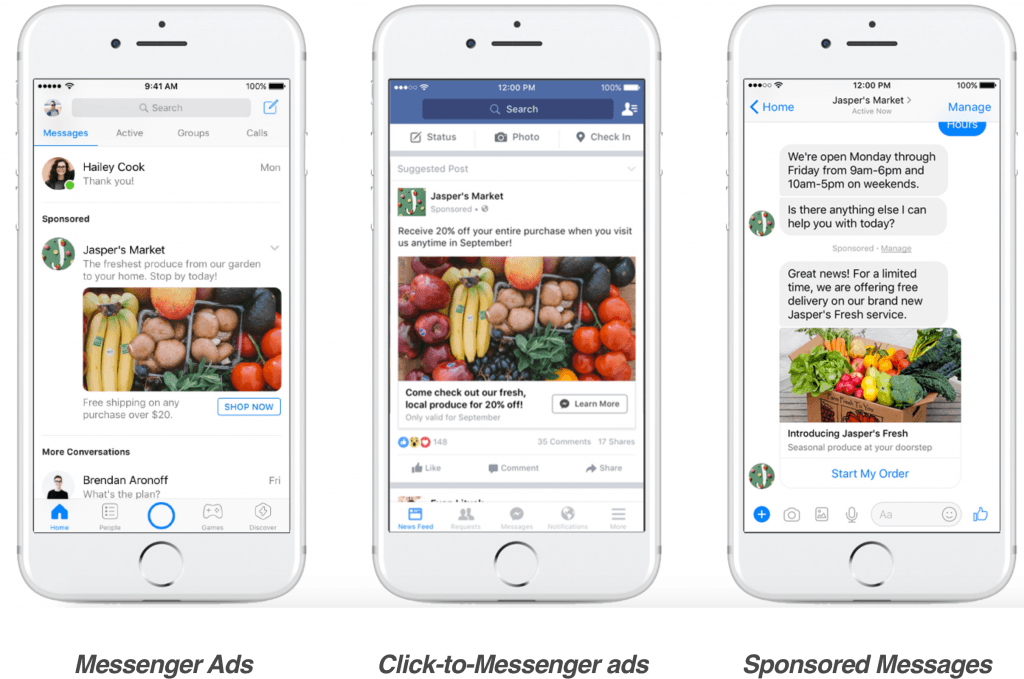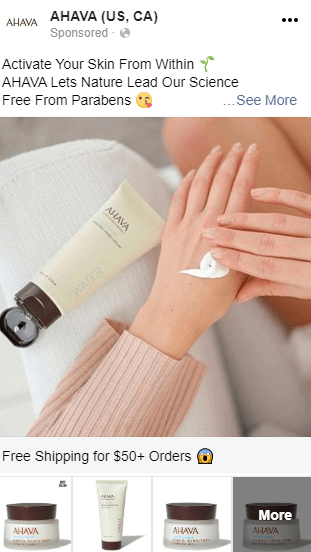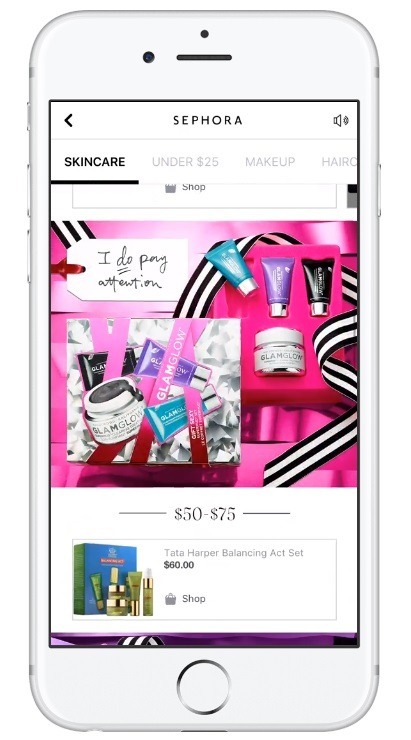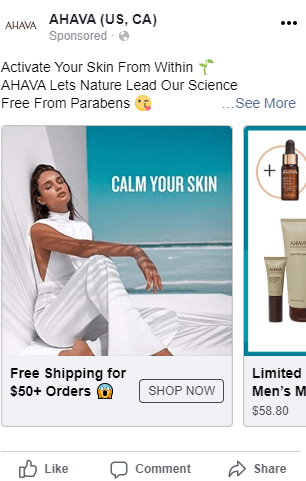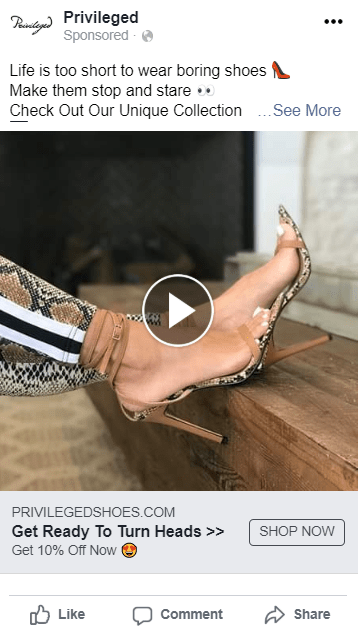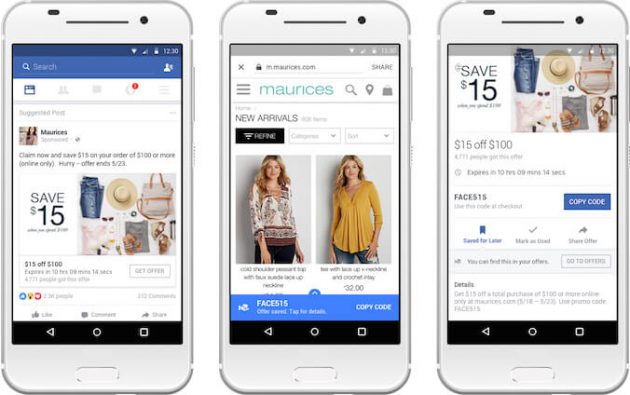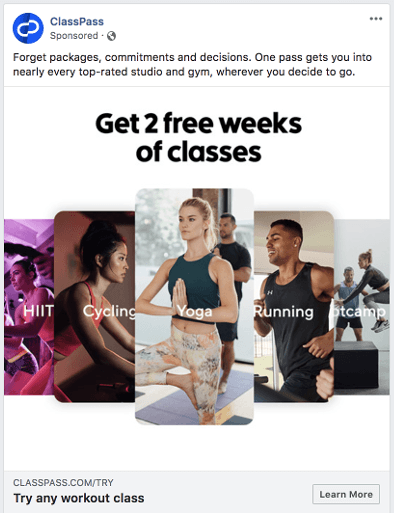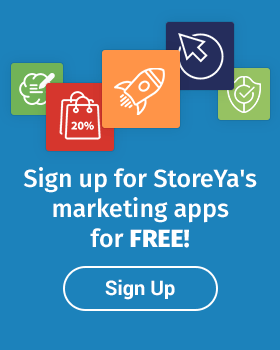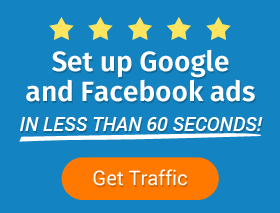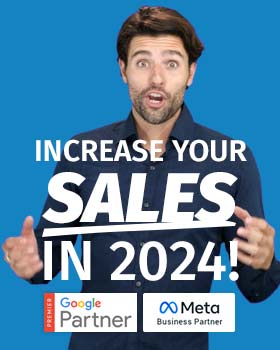Hey, eCommerce superstar… Yes, you! Lean in a little closer because we’re about to let you in on a big secret: our winning eCommerce Facebook strategy! That’s right; we are giving away all our juicy tips, based on years of campaigns we’ve run for top-tier online stores, to show you how to build an eCommerce Facebook strategy that works.
As you probably know, a well-rounded, high-performing eCommerce Facebook strategy should include campaigns that cover the four main sales funnel phases of your shoppers’ journey:
- Brand awareness: reaching new potential customers who are learning about your eCommerce brand and products for the first time. This means bringing brand new targeted traffic to your online store.
- Consideration: reaching potential shoppers who have already engaged with your store. This means re-engaging with targeted traffic with personalized campaigns.
- Decision & Action: reaching potential shoppers who have not only engaged with your store but shown a real interest in your brand or products. This means using strategic remarketing strategies to help push conversions.
- Loyalty: reaching past customers who have already bought products from you. This means re-engaging with customers to increase brand loyalty and improve customer retention rates.
But what does that translate to in terms of auditing your current marketing strategy? You need to ensure that you have created audiences of shoppers that fit into each stage and then reach them with the right campaigns.
Note: It’s important to point out here, that a successful eCommerce Facebook marketing strategy doesn’t work in a vacuum. To really grow beyond a million-dollar brand, it should be part of your overall marketing strategy for your business, which integrates seamlessly with Google Ads, email marketing, and content marketing at every phase. This will enable you to build a well-oiled conversion-driving machine, that can be continuously scaled up as you grow. This is why we will also include links and tips along the way to other PPC and marketing channels to help you do just that.
Ready to take your eCommerce Facebook strategy into fifth gear? Let’s jump in and look at all the critical components of a successful strategy!
A Winning eCommerce Facebook Strategy Starts With the Right Account Setup
Overall, you want to ensure that your Facebook account is not only well-organized but segmented for success. As we know, optimization (monitoring and tweaking) is the cornerstone of PPC success and ensuring you are getting the best Facebook ROAS possible. A well-structured and segmented account will help you do this not only quickly but more effectively. Your Facebook account structure, when marketing across your full sales funnels, should look a little something like this:
As you see, your Facebook account should be set up in a way where each campaign has a specific objective and each ad set in that campaign should be targeted toward different audience segments. Ad sets are then divided into different Facebook ads. Why is this so important? In a nutshell, segmentation. The more segmented your Facebook campaigns are, the more personalized your messaging will be in terms of objectives, audiences, and creatives. The more personalized your messaging is to the audience you are reaching, the bigger your chance of converting them.
If you find that your Facebook account is nowhere near this or you’re fairly new to Facebook ads in general, then we highly recommend visiting our full step-by-step guide to Creating the Best Facebook Ad Campaign Structure for Conversion Success. There, we highlight everything you need do – from newbie to pro-level – in order to ensure your Facebook account foundation and campaigns are set up the right way.
Next, You Need to Ensure Your Facebook Audiences are On-Point
Before you can upgrade your eCommerce Facebook strategy, you will want to do an audit of your Facebook audiences to ensure you have each stage of shopper represented in various smaller segmentations. Facebook Custom Audiences is by far the most important aspect of eCommerce Facebook marketing, and these should be a continuous work-in-progress.
Newbie Tip: If you are less experienced with Facebook ads, we recommend starting with our 6 Easy Steps to Better Targeting With Facebook Audience Insights post first before getting into more complex, expert targeting and audience concepts.
In a general sense, you should be using various lookalike audiences for awareness and a series of remarketing campaigns for consideration, decision/action, and loyalty stages. But it is how you create and segment these audiences that will put you in the expert category.
Obviously, these will differ slightly depending on your brand, target audience, niche, and analytics. However, here are our top suggestions, hacks, and audience types to create winning eCommerce Facebook strategies for our merchants at various sales funnel stages.
Awareness Audiences
- Custom Audiences based on Google Analytics data. Google’s Demographics Overview can help you assess where traffic is coming from in terms of interests, location, device, and demographics. This information can then be used for Facebook ad targeting.
- Custom Audiences targeting brand interest. If you want to reach new shoppers who are already big fans of eCommerce brands similar to yours, segmentation by brand interest can be very powerful.
- Past purchasers Lookalike Audiences. By creating lookalike audiences that match customers who bought from your store previously, you are increasing the likelihood of converting these new shoppers.
- Past email subscribers Lookalike Audience: This is an audience you create that matches the type of people who are signed up for your emails.
- Facebook value-based Lookalike Audiences: This audience type will help you find customers similar to those who buy often, instead of those who buy once (perhaps during a sale) and then never buy again. You can read more about this audience, as well as Facebook Value Optimization, here.
Pro Tip: Get very specific with your audiences! It is not enough to create one or two broad lookalike audiences with Facebook; you should be segmenting these down into very specific groups to ensure you are able to reach them with relevant ads. Another way to segment your audiences is by adding interest targeting to your lookalike campaigns. This is a helpful way to narrow down your audiences even further – making your ads even more relevant to the new potential shopper you reach.
Consideration, Decision & Action Audiences
- Web traffic Custom Audiences. This audience is a no-brainer – remarketing store traffic is vital to pushing conversions. For Facebook, you want to ensure you have different custom audiences for different groups of website traffic – separating them by what they view or how they behave on your site. This can mean segmenting by the product pages they view, the amount of time they spend on your site, or added interest targeting.
- Instagram engagement Custom Audiences. Another custom audience you can create on Facebook is one based on people who have specifically engaged with your Instagram account.
- Email subscriber Custom Audiences. This audience allows you to reach people who have already subscribed to your emails, with specific ads.
- Google Ad traffic Custom Audiences. This is where you create a custom Facebook audience based on particular people who have clicked your Google Search ads. The significant advantage of this is that you can use Facebook remarketing campaigns to target Search ad clickers and give them ads showing exactly what they are searching for.
Pro Tip: Don’t be afraid to drop the losers! If you have Facebook custom audiences performing well below your average in terms of ROAS, be ready to pause those ad sets and either optimize or delete them entirely. In truth, poorly-performing audiences will do a lot more damage to your overall Facebook marketing average – and your budget – than they are worth.
Loyalty Audiences
- Past ourchasers Custom Audiences. Every winning eCommerce Facebook strategy should include ads sent to previous shoppers; this is where past purchaser lists come in. Customer list custom audiences should be segmented based on elements like what they purchased, how much they spent, or how often they shop.
- Recent ahoppers Custom Audiences. You can also create these lists based on web traffic: users who have reached your store’s thank-you page after a purchase.
Pro Tip: You shouldn’t be remarketing to your most recent customers. What do you think a customer who has just spent dollars on your store will do when they see an ad for another product two days later? Unless it’s specific cases where you have a remarketing upselling strategy for brand new shoppers of certain products, you will want to time your remarketing campaigns for a better chance of repeat business. A simple way to ensure this is to make use of Facebook’s exclude function, and set the number of days as your limit.
9 Must-Have Campaigns for a Winning eCommerce Strategy
Now that you have audited your account and audiences, it’s time to look at the types of Facebook ads you should be setting for your winning eCommerce Facebook strategy. Like with every step in this guide, certain types of ads will be better for different stages of the shoppers’ journey. However, as a whole, you want to balance staying relevant to potential shoppers while building brand awareness and converting. It’s a continuous process of balancing, tweaking, and optimizing campaigns to reach shoppers at every stage and move them towards conversion. (To see what your store conversion benchmarks are for your niche, you can click here.)
Pro Tip: Just because one campaign does not result in immediate sales doesn’t mean they are not working. There are a lot of pit-stops along the way. In fact, Facebook referral traffic is one of the biggest ‘lies’ that analytics tell us about PPC campaigns. To ensure you are not killing a campaign that is actually working, you need a deep understanding of your analytics and the know-how to spot these ‘lies.’ We explain how to to do this in full detail in our The Biggest Analytics Lies and How to Spot Them post.
Not every Facebook ad type will suite your niche, brand, target audience, or product catalog specifically. To ensure you are building a strong eCommerce Facebook strategy that converts, you will want to test a variety of ads to find the ones that work for you. Here are the top eCommerce Facebook ad types you should test.
Facebook Campaign 1: Link Posts
If you haven’t tested link ads yet, these ads send Facebook users directly to your online store. You can test them with your lookalike audiences to introduce new shoppers to your brand and/or with remarketing lists, to bring potential customers back to your brand.
Here’s an example of a Link ad we created for one of our merchants, Personal Trainer Food.
Facebook Campaign 2: Dynamic Product Ads
We have found Facebook Dynamic ads extremely effective in terms of bringing back potential shoppers to our merchants’ product pages. The reason is these ads are specifically designed to show highly relevant products to users who have already engaged with them.
Here’s an example of a Dynamic Product ad we are running for one of our top merchants, EnvyStylz, which we used in conjunction with other campaigns to increase sales by 470%.
Newbie Tip: If you haven’t used Facebook Dynamic ads yet, head over to our 3 Easy Steps to Setting Up Facebook Dynamic Product Ads post.
Facebook Campaign 3: Messenger Ads
The next Facebook ad type definitely worth testing is Messenger ads. These include stories, sponsored messages, Click-to-Messenger, and inbox ad types and can be extremely effective in driving targeted traffic to your store.
Facebook Campaign 4: Collection Ads
Next on the list of must-test ad types for an effective eCommerce Facebook strategy is Collection ads. In fact, if you have been following this blog for some time, you may remember the full guide we did on the subject: Facebook Collection Ads for eCommerce. Although they require a little more in terms of creative thinking and assets, when it comes to combining brand-building and target traffic, Collection ads can be extremely successful.
Here’s an example of a Collection ad we are running for one of our top merchants, Ahava.
Facebook Campaign 5: Instant Experience Ads
Another Facebook ad to have in your eCommerce marketing toolkit is Instant Experience ads. Allowing online store marketers to build brand stories, Instant Experience ads work well for many leading stores. The advantages of including these ads in your marketing strategy are that they offer up a lot of lead data you can use for future retargeting, while also keeping potential customers engaged for longer. The disadvantage is that they require a lot of design commitment and know-how.
Facebook Campaign 6: Carousel Ads
Carousel ads allow eCommerce brand owners to highlight a variety of products in one ad. With each image having its own link, they offer more flexibility and product exposure in one ad. Carousel ads include up to eight products that you can combine strategically for the best results.
Here’s an example of a Carousel ad we are running for one of our top merchants, Ahava.
Facebook Campaign 7: Video Ads
At this stage of the game, if you aren’t promoting Facebook videos, you are miles behind the competition. When used strategically, Facebook Video ads can boost exposure, engagement, and conversions in a big way. This is something our PPC team knows a lot about! You can read all their top Facebook video creation tips here.
Here’s an example of a Video ad we are running for one of our top merchants, Privileged.
Facebook Campaign 8: Offer Ads
Another popular Facebook ad type for eCommerce marketers is Offer ads. Facebook Offer ads are specifically created to push your store promotions, coupons, special offers, or seasonal sales. They are particularly powerful when used with retargeted audiences such as customer lists, custom audiences, or audiences segmented by specific category or product traffic.
Facebook Campaign 9: Lead Ads
Last but not least are Facebook Lead ads. Perfect for growing eCommerce brand awareness, these ads are designed to get new email subscribers for your store. As we know, getting email subscriptions is vitally important to being able to market to people directly – without a third-party site. This ad will help you do that by harnessing Facebook’s unique custom audiences and interest targeting.
Pro Tip: Don’t underestimate the power of content marketing for eCommerce. Campaigns such as the Lead ad we just mentioned should be tested in conjunction with your eCommerce blog content when increasing your reach to new potential shoppers. Nothing instills trust in a new brand – that they have never heard of before – more than getting a big dose of value. This can be done with blog posts that address your target audience’s most pressing problems or include things that pique their passions. You can find out more about creating a scalable content marketing strategy here.
Testing, Tweaking, and Optimizing Your Way to Success
Here’s is something every Facebook expert knows: when it comes to any aspect of marketing, there is no perfect one-size-fits-all approach. Therefore, we can give you all the tips of what a winning Facebook strategy for eCommerce should have, but if you are not testing, tweaking, and optimizing your strategy, account, targeting, campaigns, and ads to suit your goals, target shopper, and niche – it will all be meaningless. Yes, it’s a full-time job but it’s so important if you want to maintain or reach the big leagues.
To get started, you will want to use our free Growth Hero tool to audit and improve your Facebook Ads account. Here, you can find out which campaigns and ad sets are losing money, which devices and operating systems are converting best for your business, the audiences you target that are working best, and whether mixing all of the segments is profitable for you. If you are using Shopify, you can get the Shopify app here. For those of you using other eCommerce platforms, visit our Growth Hero app page.
You will also want to ensure you are using Facebook campaign rules to optimize what you can on autopilot. Here are three ways you can do just that!
Additionally, you can visit some of our top posts on Facebook optimization tips and hacks for online store owners, including:
- 9 Facebook CTA Tips & Hacks to Drive eCommerce Conversions [With Examples]
- 6 Easy Steps to Better Targeting With Facebook Audience Insights
- Full PPC Management Guide for eCommerce [+Optimization Tips & Strategies]
- How to Quickly Optimize Facebook Ads for More Online Sales
- 8 Quick Facebook Dynamic Product Ad Optimization Tips for Better Success
- Crush Your Facebook ROAS With These 7 Facebook Ad Hacks
Bottom Line: Understanding that Your eCommerce Facebook Strategy is Only a Piece of Overall Marketing Goals
As we mentioned at the beginning of this post, to truly ensure your eCommerce Facebook strategy is killing it, you need to integrate Facebook into your overall marketing plan. Think of your Facebook strategy as a cog in your marketing machine, working in harmony with Google Ads, content marketing, SEO, and your overall shopping experience to streamline your conversion mechanisms.
To do just that, we recommend visiting these top guides showing you how to create cross-channel strategies successfully:
- Google & Facebook: The Perfect Cross-Channel Strategy to Drive Sales
- Why and How to Integrate Facebook and Paid Search Marketing Strategies
Got Facebook campaign questions? Post them in the comments section below and our PPC gurus will get back to you!

Nicole is a content writer at StoreYa with over sixteen years experience and flair for storytelling. She runs on a healthy dose of caffeine and enthusiasm. When she's not researching the next content trend or creating informative small business content, she's an avid beachgoer, coffee shop junkie and hangs out on LinkedIn.
Recommended articles
 Facebook Ads for eCommerce: 16 Strategies, Examples & Tips
Facebook Ads for eCommerce: 16 Strategies, Examples & Tips
 How to Build a Winning eCommerce Ads Strategy
How to Build a Winning eCommerce Ads Strategy
 Google Ads for eCommerce: Everything You Need to Know
Google Ads for eCommerce: Everything You Need to Know
 10X Your Traffic with PPC Management Software
10X Your Traffic with PPC Management Software
Comments
Powered by Facebook Comments
